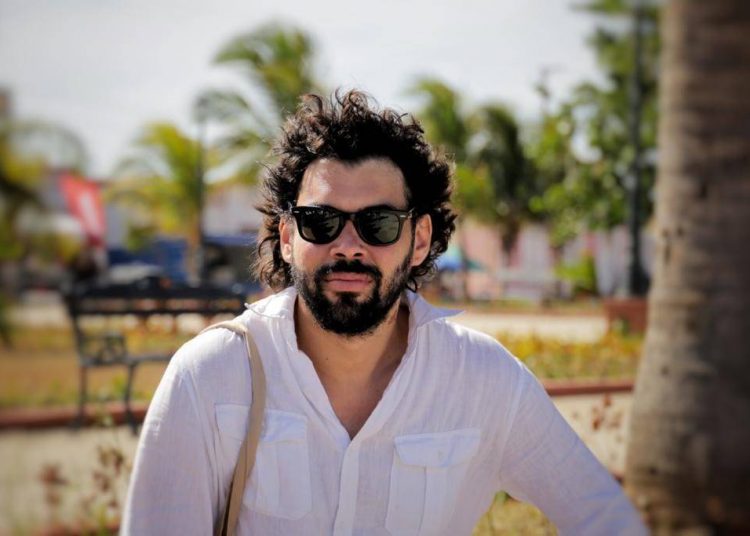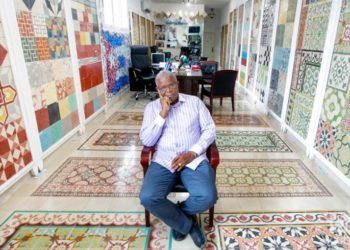Carlos Lechuga is 35 years old and is one of the young filmmakers with one of the most relevant works in Cuba. In 2012 he presented his opera prima Melaza and four years later he premiered his second feature film, the controversial Santa y Andrés.
Lechuga has carried out his work independently and has been recognized in the international film circuit. Although he has suffered misunderstanding and censorship, he continues to defend the idea that Cuban cinema must chronicle the country and tell its stories, however hard they may be.
The filmmaker, whose work is about to be consolidated within the so-called author’s cinema, is preparing his third film, Vicenta B, with an obvious autobiographical nuance. He spoke exclusively with OnCuba about this project, as well as about the controversies surrounding his other films and the so-called independent cinema.
How did the idea of Vicenta B come about?
It came from the idea of making a film about the existential crisis of a black woman. Most of the time we see Caribbean or African women represented in films, the problems that afflict them are very real, material. Almost every time that topics such as “the silence of God” or “lack of family communication” are dealt with it is in first world movies. And those issues are universal, there is no reason to leave them only to Caucasians.
How is the preparation of the film going?
Vicenta B is my third film, but for me it’s as if it were my opera prima. With Melaza and Santa y Andrés, I was in a big hurry and had a great thirst for denunciation, which made me make them in a kind of trance, trying to tell the stories and leaving in second place many ideas about the atmosphere, the mystery, the visual.
With this film I have reached a higher level of maturity and because of this, I and my producer, Claudia Calviño, want to take as long as necessary to be able to make a bigger film in which I can use resources that until now I have never used as a filmmaker.
Vicenta B is a project that will mark a difference compared to my previous films. We have been working on the story for three years and we wanted to give ourselves the necessary time for the script to be very solid.
For that, at this time of the development of the project in which we are, we have applied to several workshops and industry meetings that have helped us a lot. The story has been reviewed by great film professionals, such as Lluis Miñarro, Marisa Paredes, the advice of the advisors of Sundance, Ibermedia, Eave. And we have very good allies as co-producers.
In addition, we want to have the voice of Haydée Milanés for some very special themes.
We are still at the development stage of the film, we have won the GOCUBA fund and there are other things that can’t be said yet…. But soon we will be filming and we plan to release it in the second half of 2021.
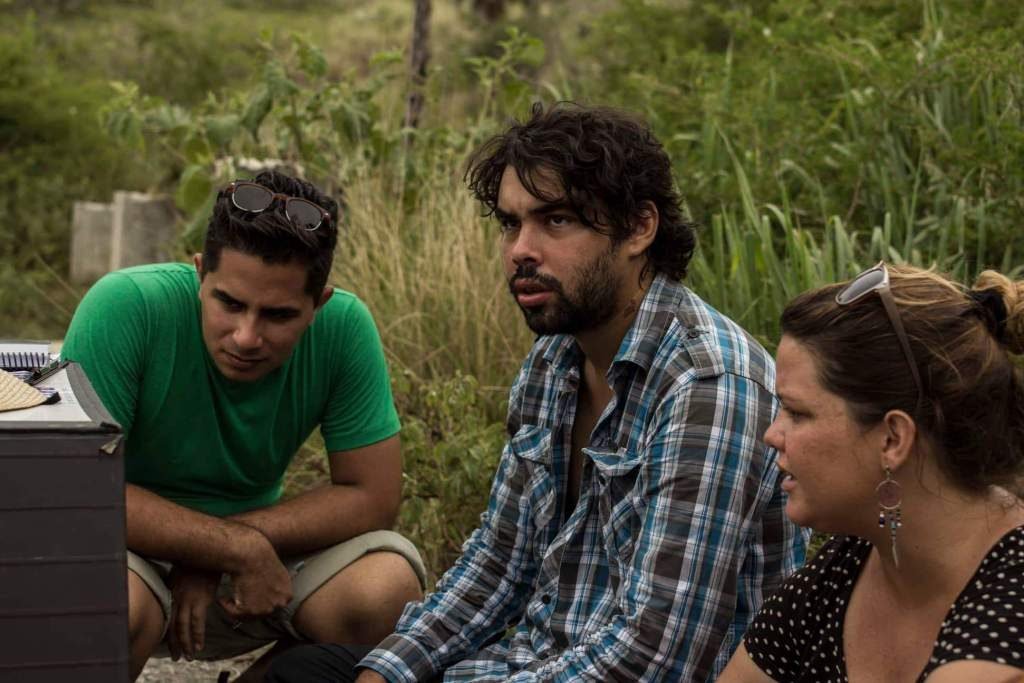
The leading character is based on your grandmother. What led you to include her as the main character of the movie?
Vicenta B is the story of a woman who is learning to know herself. The name is the real name of my grandmother Vicenta, with whom I grew up and lived until her death. My grandmother was a woman who had a gift. She could see you, and without knowing you, she would tell you things that were impossible for her to know.
As if a voice spoke to her, or as if she had visions. My grandmother would X-ray anyone and thus helped many people. They even called her from Miami to make phone consultations.
I grew up in a house that was always full of women, women who came for help, women who had serious problems and who found support in the temple that my house was. As a child, I remember helping my grandmother, bringing her the cards, the glass of water for the consultation. And so I learned a thousand things, many stories, many of the dramas of these people who came to my house.
Growing up in this space, among so many superstitions, beliefs, dreams, apparitions, made reality for me a richer world. And maybe that’s where I get the urge to tell stories and make movies.
Both cinema and spiritualism are ways to face and help us cope with the harsh reality. For me, it’s not alienation, it is support. A way to rebel against the unjust, the unknown. The story of a woman who looks for signs of a beyond, the question of God’s silence and wanting to know more about our role in this life, are issues that I love.
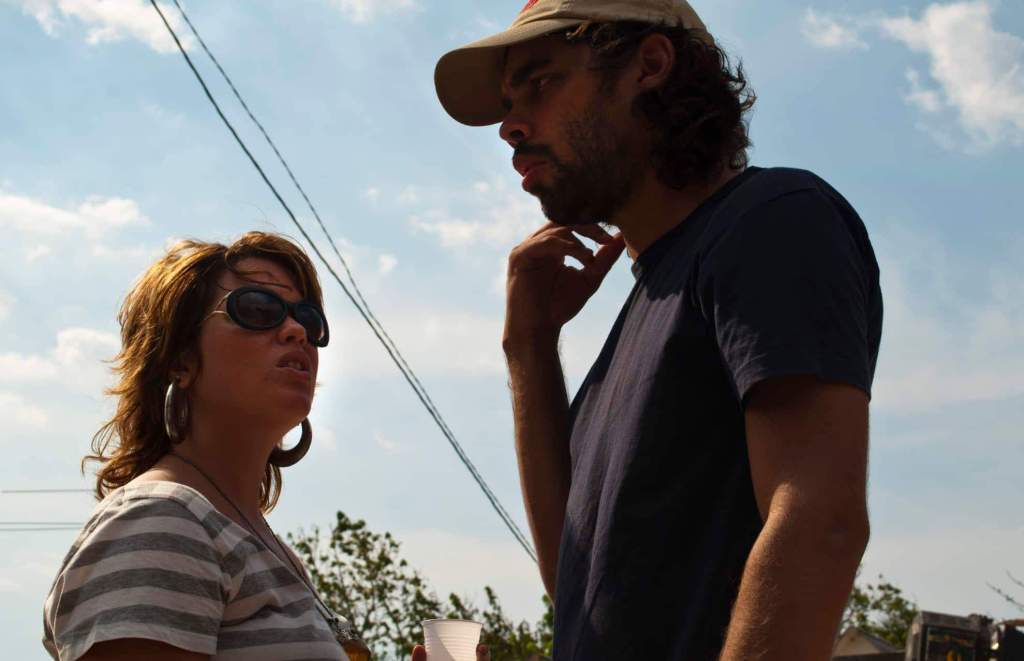
What stage of your professional career do you think that film will occupy?
I’m in a new stage of my life as a filmmaker. I feel safer, more mature. I think it will be my best movie. It’s already the third, which is an important number, although at the same time I feel as if it were my opera prima, because as I told you, I’ll be able to do things that I didn’t do in my first two films.
Some of the ideas I want to try out were already seen at the Havana Biennial, because I already tried them in the Generación video, made in co-authorship with Marco Castillo. I think it will be a more mature, more visual, bigger movie.
Do you think that Vicenta B could be screened at the Havana Film Festival?
I would love that, every Cuban filmmaker’s dream is to see his film in the Yara movie theater, crowded with the Festival’s audience; but as we well know that’s an issue that does not depend on me. However, when it is finished, of course we’ll present it and we’ll see the response of the Festival team, with which we have very good relations.
Santa y Andrés was a turning point in contemporary audiovisual creation in Cuba. What led you to shoot a story like that?
After so many years of talking about the same thing, I’m already a little tired of the subject of Santa y Andrés. But there’s one thing that I’m interested in emphasizing: the best thing that happened to this film, and my greatest pride as a filmmaker, happened before the much-touted issue of censorship.
The film premiered in Toronto and then in San Sebastián, and the audience, without knowing what it was about, reacted very well. Then came what we all know and the experience of many, it no longer came with the innocence and virginity of these first audiences.
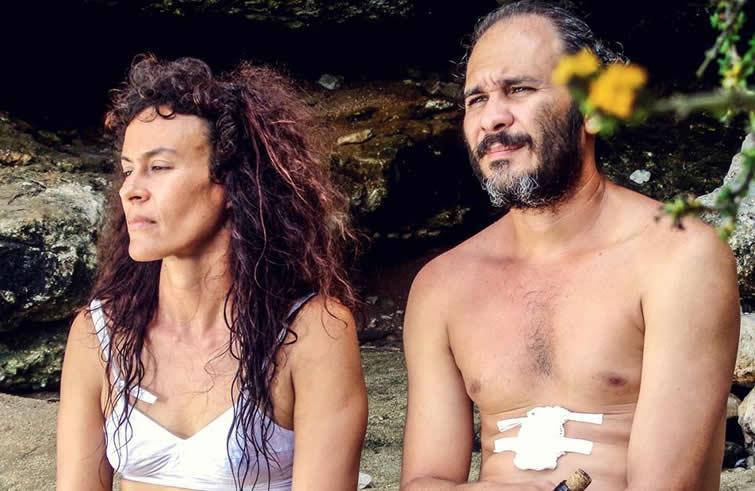
I think that as time goes by, the film will be given the place and importance it deserves. Maybe ten years from now nobody will remember it, or the work itself will stop moving people. I don’t know. What led me to shoot a script like that was that my screenwriter intuition told me that I had a good story in my hands.
It all started when we premiered Melaza at the Havana Film Festival, and some officials of the Film Institute of those times were upset and with this came an attempt at censorship. At that time, we received several strange calls in which we were urged to make some changes to the film before the presentations. In the end, we did not have the money to make the changes and things didn’t come out badly.
The film continued traveling and a year later it was screened for five days in the Multicine Infanta. Starting then, out of curiosity, I began to investigate a little about censorship in Cuba; and little by little the idea of Santa y Andrés appeared. I started researching and found many artists who inspired me. But the most important thing was that I had an image in my head: the image of a woman carrying a chair, heading towards a house, where she was going to watch someone.
What did you want to achieve with the film?
I really didn’t want to achieve anything. I wasn’t thinking about that at the beginning. I only had one idea and I thought there was a good movie there. The same happens when a musician writes a song that is good, one goes on and watches. Then I realized that the movie was about love, and about how sometimes extreme political ideas separate people.
At an aesthetic level, I wanted to achieve a story where two very different people chose to enrich those things that united them and put aside those that separated them.
The movie also talked about hate. How hate has separated us a lot. But at this point in my life, I find it very innocent to think that a movie can change the world, if anything, it can change some individuals on a personal level.
Do you think the people who prevented its being screened understood it?
Some do. I remember two people who were delighted with the performance of Lola Amores and the character of Santa. But I think others were predisposed and already knew beforehand that they had to say no, vote no on the question of accepting the screenings.
There was a very important person who described it as a work of art, but that it went beyond many issues since it said things that could not be said. And that’s why it was not part of what was accepted in Cuban cultural policy. One of the censors really enjoyed the movie and then at the first meeting with the then minister of culture she didn’t appear. I don’t know if they told her not to go or she abstained on her own. But at the same time I know that many of the people who prevented the screening have seen the movie alone at home.
Was there a dialogue between ICAIC and the film’s team of directors?
A lot, for several months. Many filmmakers who belong to ICAIC supported us, others used us to reestablish with the minister’s office a dialogue that at that time was frozen. And there were also officials, who didn’t want to help, but in any case they dialogued with us. In those long months we talked with many people, including with State Security.
What was the most important moment for you with Santa y Andrés?
Before censorship: the Toronto and San Sebastian festivals. Then, the amount of awards that we won at the Guadalajara festival. Even today, three years after everything, the film has just premiered in Germany. The movie is still alive and traveling.
How has your way of interpreting Cuban reality evolved from Melaza?
I am the same, but I am less innocent. I know more. The entire censorship process has made me discover new things about Cuban reality; and at the same time I feel so satisfied with what I tried before, that now I have like new eyes to see everything.
Reality has also changed a bit and I think that’s why it would be a mistake to try to do the same thing, or face the same thing aesthetically. That’s why Vicenta B is a very different movie.
How do you define independent cinema? Can we really talk about this kind of creation in Cuba?
When talking about independent cinema we mean all those films that, in one way or another, are made outside the usual production circuits. At first this name referred to American films that rejected Hollywood’s mode of production. But then this was expanded and you can already talk about an independent Argentine, Romanian, Cuban cinema….
I do believe that you can talk about an independent cinema in Cuba. I have done all my work as a director independently and it has not been easy at all, but it was worth it.
Cuban independent cinema is a terminology used to talk about the works that have emerged outside ICAIC, the ICRT or any state institution.
I, for example, feel very proud that none of my films cost this country’s State a penny. We live in a country in crisis and the money invested in a film is really almost never recovered, because movie prices in Cuba are very cheap.
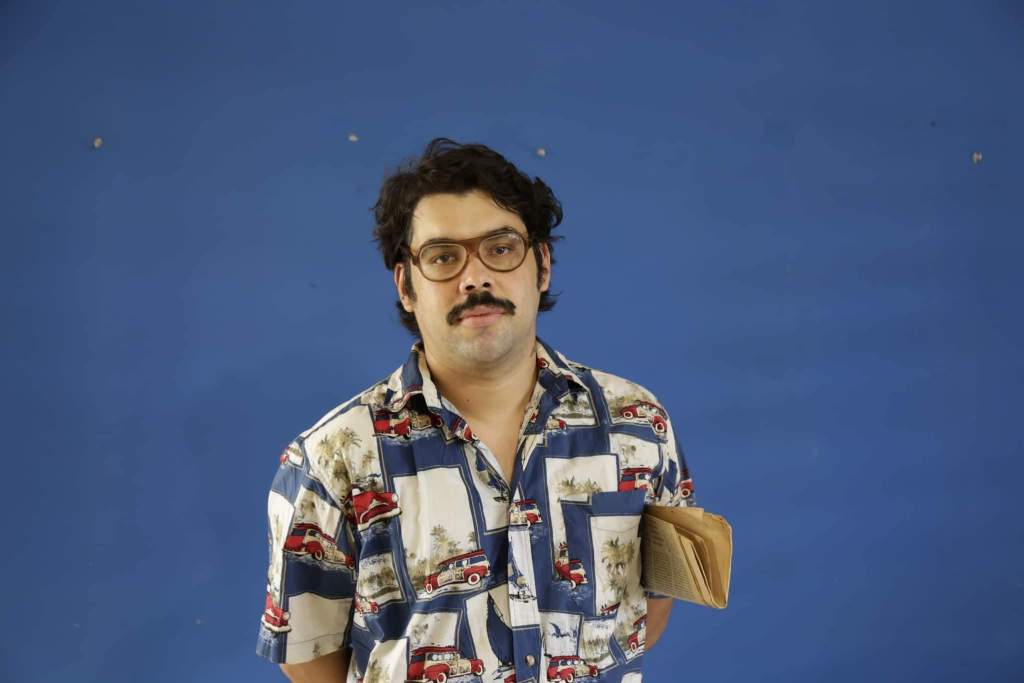
I would have some reservations to make a blockbuster paid by the government. Imagine that the movie comes out bad, not only will it not recover the money, but aesthetically it would have no value either. Everything would be an expense for a country that needs that money for other more important things.
With the democratization of technologies, it became easier to make movies. Today anyone can make a movie and upload it to the Internet. The problem is that if you want it to be shown in a movie theater, you do need authorization.
Cuban independent cinema exists, everyone knows it, the problem is that some malicious people who have certain power or influence are constantly trying to detract from its value or demonize it.
We have two film schools that graduate many filmmakers every year and most of these young people will start making independent cinema.
These young people who graduate now with the desire to make movies, in 1990 would have had to get 35 MM film and be forced to find a laboratory. But, now, with new technologies it is easier to make a movie.
The goal of independent filmmakers is to make their films. I don’t know anyone whose raison d’être or reason to live is to offend Alfredo Guevara, Tomas Gutiérrez Alea or Humberto Solás. What people want is to be able to make their films in peace. Nobody wants to eliminate the past or deny any of the great movies.
That’s why it’s a real pain when you see someone who has nothing to do with cinema talking on television against oneself.
Some use these old strategies to say that independent cinema is paid by the CIA and that young people travel to festivals with these films. Mind you, it’s very naive to think that a CIA agent is waiting behind a column with an envelope in his hand to pay for a movie like Melaza or Santa y Andrés.
These films, despite being critical, emerge from the minds of filmmakers who study, read, live and breathe this country. Well-educated people, who know how to think for themselves.
Look here, Melaza and Santa y Andrés are films that won screenplay awards and that money was made available for the production. If I had someone from the CIA giving me money, I would live in better conditions.
What do you think are the virtues of young Cuban filmmakers?
Trying to film no matter what and at all costs, against all odds. Strength, determination, and originality. When things are not easy for you, this can serve as a driving force to move forward.
Do you feel identified with your generation?
With some and especially with younger people. It is very difficult to feel identified with many others.
Do you think there is a place in Cuba today for questioning films about the surrounding reality?
Yes, it depends on the approach, and how far one gets.

